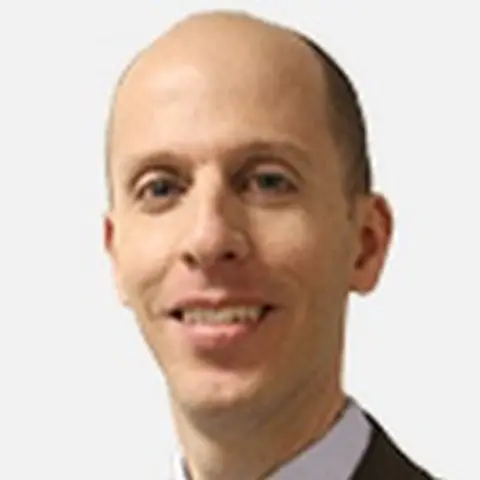Ukraine war: Five challenges for Biden in Europe

 Getty Images
Getty ImagesJoe Biden is taking his third trip to Europe as US president at a moment of international crisis. His last journey, in the autumn for the G20 meeting in Rome and the climate conference in Glasgow, was planned months in advance.
This one is of the emergency variety.
Russia's invasion of Ukraine is entering its fourth week with no end in sight, and the path ahead for the US-Europe alliance is far from clear.
Here's a look at five of the most pressing concerns as Mr Biden meets European leaders and allies in the days ahead.
A show of unity
Ever since Russia invaded Ukraine, the US has made special efforts to move only in concert with its allies. That sometimes meant holding off on actions - such as different forms of sanctions or military aid - until the rest of Nato was ready to take steps concurrently.
This was never easy given the disparate interests of the 30-nation alliance, but the early, dramatic days of Russia offensive created a sense of urgency that removed some traditional obstacles to consensus. As the war drags on - and the economic fallout from the violence and resulting allied response grows more pronounced - the potential for public discord within the alliance will increase.
The primary goal of Mr Biden's trip, then, is to be seen standing shoulder-to-shoulder with America's allies (literally and figuratively) and to demonstrate that strengthened Nato resolve is not a temporary condition but the new normal in response to Russia's expansionist policies.
Refugee crisis
After meeting other leaders in Belgium, Mr Biden will travel to Poland for a bilateral meeting with President Andrzej Duda. Given the nation's position on Nato's eastern flank, the former Soviet satellite state has been given special attention by the US in the past few months, with visits from Secretary of State Antony Blinken and Vice-President Kamala Harris.
Although topics of military aid to Ukraine and an increased Nato presence on Polish soil are sure to come up, US officials say the top issue for the meeting will be dealing with the flood of refugees that has been arriving at the Ukraine-Poland border since hostilities began.
Caring for and processing millions of refugees has put a considerable financial and logistical burdens on Poland and, if not handled competently, could ultimately lead to social unrest and economic instability.
Given Poland's geopolitical importance in the confrontation with Russia, ensuring the nation remains a reliable Nato member is a pressing US concern.
Military solutions
In the past few months the US and its allies have open the spigots of lethal military aid to the uniformed and volunteer Ukrainian forces holding off the Russian assault.
As Ukrainian President Volodymyr Zelensky has made clear recent in speeches to legislative bodies in Europe and North America, however, the aid so far has not been enough. He says Ukraine needs more sophisticated anti-air systems as well as jet fighters capable of "closing the skies" over Ukraine to Russian warplanes.
While the US has promised to provide more advanced long-range air defense capabilities, that's easier said than done. As seen with the friction between the US and Poland over the proposed but now shelved effort to supply Ukraine with Polish-owned Soviet-era jets, there are concerns over the kinds of anti-air support that would generate a Russian response against Nato, the logistics of getting weapons into Ukrainian hands and how to replace the weapons that are transferred.
The US is currently engaged in discussions with Nato members Slovakia and Turkey to move their anti-air systems over to Ukraine, but it will take a more deft touch than was displayed with Poland to accomplish it. If Mr Biden can pull this off while he's in Europe, it would be a notable success.
A sanctions roadmap
The US and its allies promised that they would impose unprecedented, debilitating economic sanctions on Russia if it were to invade Ukraine. After some early fits and starts, that's exactly what the allies have done. The Russian economy, its stock market and its currency have been staggered by the allied punishments, which include trade restrictions, financial isolation, limits on energy exports and targeted sanctions on Russian political and business leaders.
Severe as the restrictions may be, however, they have not deterred Russia from continuing its all-out assault. While western allies insist that the pain of the current sanctions will increase as time goes by, there is growing pressure on US and European leaders to find new ways of punishing Russian aggression that they can announce during Mr Biden's meetings this week.
Some proposals include new sanctions on oligarchs and politicians, greater restrictions on Russian energy exports and the kinds of technology that is imported to Russia.
None of these seem likely to produce a dramatic new impact on the Russian economy, but sometimes the perception of continued action is as important as the actions themselves.
The China question
Chinese President Xi Jinping and Vladimir Putin had a warm meeting in Beijing during February's Winter Olympics, where they described a friendship between their nations that had "no limits". If that translates into ongoing Chinese economic and military support for Russia in the months ahead, it could undermine everything the US and its European allies are trying to do in Ukraine.
Last week, US National Security Advisor Jake Sullivan met his Chinese counterpart in Rome, followed by a nearly two-hour phone call between Mr Biden and Chinese leader Xi Jinping. The US can't act alone here, however. Both America and Europe will need to make concerted, co-ordinated efforts to convince China to keep its distance from Russia and, if possible, be more vocal in its denunciations of Russia's infringement on Ukrainian territorial sovereignty. China's recent backing of Russian participation in the upcoming G20 economic summit suggests the task will not be easy.
Like the US, Europe is a key market for Chinese goods - and the threat of US and European sanctions on China if it were to openly aid Russia is already weighing on the Chinese economy. Mr Biden has frequently spoken of how the world is in an era-defining conflict between democracies and autocracies - but pushing China and Russia into the same adversarial camp at the moment is a risky move.
